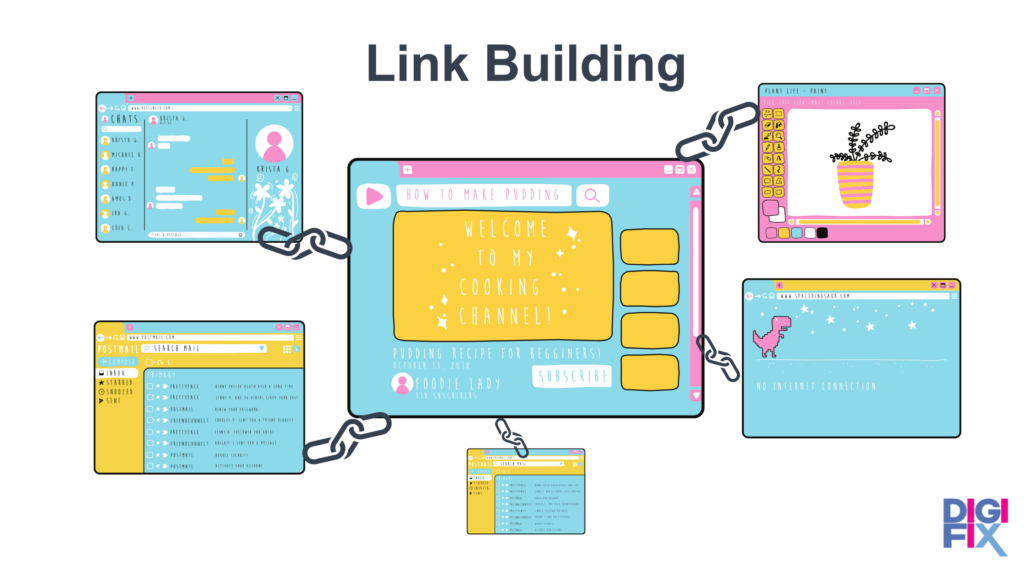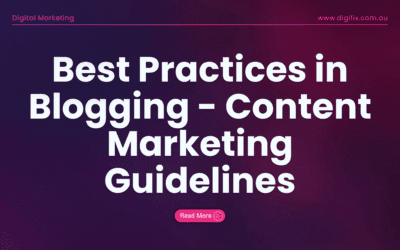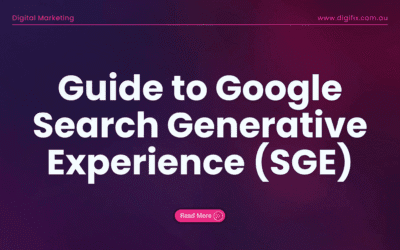This is a complete guide to What is Off-page SEO for those who are looking to master SEO skills.
What is Off-page SEO?
I hope you know what SEO or Search Engine Optimization means. In simple terms, SEO is the process of increasing the visibility of a website on search engines & rank higher to get more website visitors.
To learn more about SEO, you can read below blog post,
SEO Basics for Beginners | A complete guide to SEO
Off-page SEO is one type of optimization technique in SEO. So, what exactly is Off-page SEO? It refers to everything you can do outside your website to improve its visibility, ranking & traffic.
Off-page SEO is important since search engines consider external signals to be indicators of your website’s reliability, relevancy, and authority. In other words, off-page SEO assists search engines in understanding how other websites and people view the value of your site.
The Importance of Off-Page SEO:
1.Increase Search Engine Rankings.
Off-page SEO assists Gogle & other search engines in recognizing your website as a reliable and important resource. When credible websites connect to your content, search engines recognize that your site deserves higher rankings in search engine results pages (SERP).
2.Drive organic traffic to your website.
Off-page SEO tactics can greatly boost your website’s exposure and attract more organic visitors. You enhance the chances of visitors finding and clicking on your website in search engine results pages by raising your search engine rankings.
3.Establish the authority of your website.
Off-page SEO efforts help your website position itself as an authoritative source in your sector. When trustworthy websites identify themselves with your content via backlinks, it strengthens your credibility and competence.
4.Build brand awareness.
Off-page SEO allows you to boost the visibility of your business across multiple online platforms. Interacting with your audience on social media, guest blogging, and engaging with online communities assist in expanding your brand awareness and building brand recognition.
Highly effective Off-page SEO techniques:
1. Link Building

Link building is one of the core components of off-page SEO. Search engines use backlinks as endorsements. High-quality backlinks sign that your website has worthy content and should be ranked higher.
It’s essential to consider the authority and relevance of the connecting websites when it comes to acquiring links to your website. Search engine algorithms give links from trustworthy and reliable sources greater significance. The anchor text used in the backlinks should also be relevant and descriptive.
Over the past 23 years of Google’s existence, link-building strategies have undergone significant evolution, transforming into highly sophisticated practices.
Following are some of the top link building strategies to encourage others to include a link to your website,
(a). Publishing link-worthy content on your website.
Publishing link-worthy content encourages people to give links to your site. Content that is worth linking to is also educational and informative. It addresses a common problem or answers popular inquiries from the audience.
Some link-worthy content includes,
- Educational content
- How-to blogs
- Research articles
- Data & trends in your industry
- Motivational content
- Evergreen content
(b). Outreaching.
Outreach is reaching another website for earning links from that site. You can contact website owners & request them to link to your content.
Outreach helps to make relationships, expose your expertise or skills, & encourage others to link to your website. Successful outreach demands careful planning, effective communication, and offering value to the target website or its audience.
(c). Guest Blogging/ Guest posting
Guest blogging involves creating and posting content on websites related to your company or niche. You can grow your audience with this tactic, position yourself as an industry leader, and create beneficial backlinks to your website.
When searching for websites to guest blog on, choose authority sites with established reputations, relevant content, and active audiences. Create useful, high-quality content that benefits their audience & include links to your site.
(d). Broken Link building.
Broken link building is a link-building approach that involves finding broken or dead links on other websites and contacting the website owners to propose replacements with your relevant content.
It works on the idea of assisting website owners in the repair of broken links while receiving valuable backlinks in exchange.
2. Local SEO
Local SEO is an off-page optimization technique that concentrates on increasing the online visibility of a business in local search results. It involves optimizing factors outside the business website to draw local customers & increase foot traffic to physical stores.
Here are some Local SEO techniques,
- Google My Business: For local SEO, it is essential to claim and improve your Google My Business (GMB) profile. It makes sure that the details about your company, including name, address, phone number, and business hours, are correct and consistent across Google Search and Google Maps.
- Local Business Directories: Listing your company on relevant local directories such as Yelp, Yellow Pages, and industry-specific directories can help you increase your online presence. Backlinks from these directories boost your possibility of appearing in local search results.
- Online Reviews: Local SEO requires encouraging and managing consumer reviews. Positive reviews on sites such as Google, Yelp, and Facebook not only increase your reputation but also have an impact on search engine rankings. Replying to favorable and negative feedback indicates your dedication to customer satisfaction.
- Localized Content: Creating location-specific content for your website assists in targeting local keywords and attracting local clients. Incorporate city or area names, landmarks, and pertinent local information into your content in order to indicate to search engines that you cater to a local audience.
- Online Maps and Directories: Submitting your company’s information to online maps such as Google Maps and Apple Maps makes it easier for clients to discover your actual location. It improves your local visibility and provides precise map-based directions.
3. Social Media Marketing
Social media marketing is an off-page SEO method that promotes your website using social media platforms. It is essential for increasing online visibility, boosting traffic, and building relationships with your target audience. While the primary goal of social media marketing is to have a strong social media presence, it also indirectly adds to off-page SEO through a variety of techniques.
In social media marketing for off-page SEO, there are several actions you can take to enhance your online presence and improve your search engine rankings.
- Build a Strong Social Media Presence: Create and optimize profiles on suitable social media platforms that align with your target audience.
- Share High-Quality Content: Share persuasive and valuable information from your website on social media on a regular basis. Ex: Blog posts, articles, infographics, videos, and other relevant content.
- Encourage Social Sharing: Include social sharing buttons on your website to make it simple for users to share your content. It encourages users to share your content with their followers, broadening its reach and boosting the possibility of backlinks.
- Monitor Brand Mentions: Regularly observe social media platforms for brand mentions, including tags, hashtags, and direct references to your business. Engage with users who mention your brand, reply to their comments, and convey gratitude for positive mentions.
- Utilize Social Bookmarking Sites: Submit your website or blog post to social bookmarking sites like Reddit, StumbleUpon, or Mix. These platforms allow users to discover and save interesting content, potentially driving traffic and generating backlinks.
Studying the performance of external links and social media interactions provides valuable signals to improve your off-page SEO strategy.
4. Content Marketing
Publishing top-notch content is critical for captivating your audience & obtaining backlinks, gaining media attention, and exhibiting expertise, authority, and trustworthiness (E-A-T).
Publishing high-quality material indicates your industry or specialized expertise, authority, and credibility. You establish yourself as a trustworthy source of information by constantly generating well-researched, correct, useful articles. That improves your E-A-T, which is emphasized by Google’s search quality recommendations. Websites having a high E-A-T score are more likely to rank higher in search engine results since they are perceived as reliable and reputable sources.
5. Online Reputation Management
Off-page SEO requires you to manage your internet reputation. Potential buyers frequently examine a brand’s reputation before purchasing in today’s digital age. Positive feedback, comments, and references from credible sources can impact their opinion of your brand.
Actively track online brand mentions managing your online reputation efficiently. Quickly handle complaints from customers, swiftly respond to their feedback, and constantly work to deliver superior customer service. You may create a solid online reputation and gain the audience’s trust by regularly providing a great brand experience.
What are some common mistakes to avoid in off-page SEO?
It’s critical to be aware of frequent mistakes that might sabotage your SEO efforts. Avoiding these mistakes can help you obtain better outcomes and increase visibility. Here are some common off-page SEO mistakes to avoid:
- Low-Quality Backlinks: Obtaining low-quality or spammy backlinks might harm your website’s image and search rankings. Avoid link schemes, purchasing links, and employing automated link-building tools. Instead, obtain high-quality, appropriate backlinks from reputable and credible sources.
- Ignoring Content Quality: Off-page SEO should go hand in hand with high-quality, useful content. Don’t solely focus on link building while ignoring the quality of your content. Poorly written, uninformative, or unrelated content will not attract backlinks or entertain your audience.
- Ignoring Social Signals: Off-page SEO is heavily reliant on social media networks. Neglecting social signals such as likes, shares, and comments might reduce your website’s exposure and engagement capacity. To increase your visibility and attract more backlinks, be active on social media, promote your content, and motivate social sharing.
- Not Monitoring Backlinks: It is critical to analyze your backlink profile frequently in order to discover any toxic or spammy backlinks. Use Google Search Console or other backlink analysis tools to find and remove problematic links that can impair your website’s rankings.
- Ignoring Local SEO: If your company works locally, ignoring local SEO methods may damage your online exposure. Make sure to optimize your website for local search, add your company to appropriate directories, and constantly interact with local communities and customers.
Frequently Asked Questions about Off-page SEO:
- What is the difference between on-page and off-page SEO?
On-page SEO is enhancing a website’s internal components, such as the content, meta descriptions, headings, and site architecture, to increase visibility and search engine ranks.
On the other hand, off-page SEO refers to techniques used to increase the authority & relevance of a website in the eyes of search engines. These techniques include link-building, social media marketing, and more.
- How long does it take to see results from off-page SEO?
Off-page SEO results can take time based on various factors, including the competition of the sector, the success of the tactics applied, and the current condition of your website’s off-page optimization. In general, major increases in search engine rankings and organic traffic can take many weeks to months.
- Is it necessary to hire a professional for off-page SEO?
While you can implement off-page SEO methods on your own, working with a professional SEO agency or expert has various advantages. Professionals have extensive expertise and experience in off-page SEO approaches, & access to industry resources, and the ability to develop and implement comprehensive strategies geared to your specific business objectives.
- Can off-page SEO alone improve search engine rankings?
Off-page SEO is vital for enhancing search engine ranks, but it works in combination with on-page SEO. On-page and off-page adjustments complement one another and add to total SEO success.
Conclusion
In this blog article, we discuss what is Off-page SEO? What is its importance? What are some effective off-page optimization techniques & common mistakes to avoid in off-page optimization?
We hope you have a clear & sound understanding of What is Off-page SEO?
To build an effective off-page SEO plan, you need a combination of the techniques mentioned in this blog. Then you will be able to rank higher on search engines.
If you need any assistance with your SEO efforts, we are here for you. DigiFix is one of the best SEO agencies in Melbourne that helped many companies & brands to reach their highest potential. Contact us & let’s have a chat on how to bring your website to the TOP!
Good Luck on your SEO journey!
You may like the below SEO related articles as well,
Do you want more traffic?
—————
Hi, we are an Australian digital agency doing groundbreaking work to help a business like yours reach its full potential. My only question is will you qualify for our services?
Do you want more traffic?
—————
Hi, we are an Australian digital agency doing groundbreaking work to help a business like yours reach its full potential. My only question is will you qualify for our services?





0 Comments